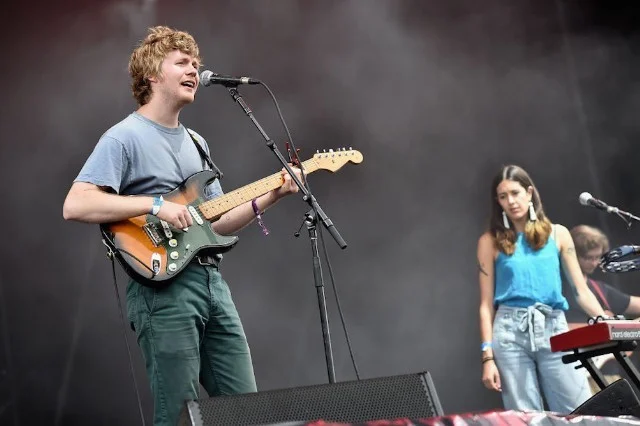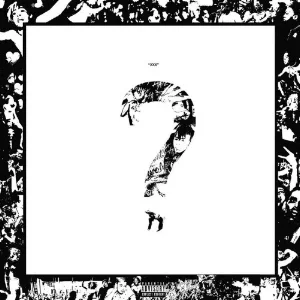Art & the Artist
Max Simon ‘19
Pinegrove’s Evan Stephens Hall (courtesy of Spin.com)
Artists of every kind have always held a unique place in society. Many artists, intentionally or otherwise, are isolated either mentally or physically from the average person, and the public oftentimes uses this isolation to create an unrealistic image of the artist. An unshakable persona for the artist is formed, giving them a different set of standards than the rest of society. This societal pedestal creates an unhealthy image of the artist, and in the world of music, it is not uncommon to see an artist with a God-like status among fans. Abuse of power and status by popular musicians can surely be traced back to the beginnings of live music, and the tired “sex, drugs, and rock n’ roll” trope has only perpetuated the inequity between the performer and audience.
In light of the recent #MeToo movement, however, many musicians have ungracefully fallen off this pedestal. Some of the biggest names in modern music, along with members of countless smaller bands, have had sexual assault charges leveraged against them. Of course, this is heartbreaking and confusing for their fans, and after reading endless op-eds and comments on social media, the question almost always comes down to “Can we separate the art from the artist, or are the two inherently the same?” About a year has passed since the first wave of #MeToo, and the question is harder to answer than ever.
On Wednesday, September 6th, I opened Pitchfork to see a face I hadn’t seen in almost a year: Evan Stephens Hall of the indie rock band Pinegrove. I have been a fan of Pinegrove since I first heard their album Cardinal, an outstanding synthesis of vulnerable lyrics, roots rock instrumentation, and an infectious punk energy that seeps through the whole album. As I fell in love with the music, I also grew to love their message. The members of the band formed connections with their audience, emphasized the importance of their concerts being a safe space for fans, and donated much of their proceeds to organizations such as MusiCares, the American Foundation for Suicide Prevention, and the Voting Rights Project. I even found solace in their lead lyricist, Evan, a fellow bibliophile whose dismissal of stereotypical frontman antics was a refreshing break from the neverending onslaught of testosterone-driven rock music.
But I soon came to resent him just as quickly as I had fallen in love with his music. In November of 2017, Hall released a confusing statement on Facebook describing allegations of “sexual coercion” by a fan-turned-romantic partner. The relationship, he said, lasted a “short but intense period of time”, and he detailed some of the complicated inner-workings of the relationship. He also addressed a comment he had made onstage about studying “who from the crowd would be interested in sleeping with me based on how they watched me perform.” This disgusting comment shocked me because for as long as I had been a fan of the band, I would never have taken Hall to stoop to the level of a groupie-shagging rockstar stereotype. At the end of the post, Hall announced that Pinegrove had decided to cancel the tour scheduled for that winter, as well as shelving their album Skylight.
I was much more devastated than I had anticipated, and I refused to listen to their music as I couldn’t bring myself to support an abuser. At the same time, Hall’s influence on me as a musician is undeniable, and I was constantly reminded of that when writing songs. In other words: I loved the art, but I couldn’t separate it from the artist. Hall’s songs are often very autobiographical, and because of that, I found them to be inextricable from Evan as a person. Some of my friends, however, didn’t have this same struggle and continued listening to Pinegrove even though they knew Hall was not the person we once thought he was. I couldn’t seem to understand how they could just skim over something so important to me, and I looked to other examples for answers.
XXXTentacion is one of the biggest names in modern rap, known for fusing elements of emo, hip-hop, and alternative rock to create a new, highly influential sound. He only released two full-length records in his short lifetime, and each was wildly successful. His lyrics are known for being emotional and touching, raising awareness of mental health issues that many rappers didn’t address. Yet, X, as many fans call him, was not exactly a great role model. In September of 2017, a woman who had been romantically involved with X delivered a testimony detailing a gruesome and highly abusive relationship between the two. Among other horrific actions, X was convicted of aggravated battery, domestic battery, false imprisonment, and witness-tampering. After the testimony, Spotify took issue with promoting such a controversial artist and removed him from their curated playlists. Many fans decided to not listen to his material, but just as many chose to ignore the charges. X died an untimely death in June and a posthumous single was released in September. At the time of writing this, the track has over 100,000,000 streams on Spotify, and three of his songs are currently on the Billboard Hot 100.
On February 9th, 1964, the Beatles appeared on the Ed Sullivan Show and almost immediately shot to an unprecedented level of fame. Together, they penned many of the most influential songs in the canon of popular music, redefining the idea of a rock band along the way. As their career progressed, each member formed an identity distinct from their bandmates. John Lennon, a key songwriter and guitarist, used his platform as a way to spread his political activism, namely his support for peaceful protest in the face of the Vietnam War. Many of his post-Beatles songs featured lyrics that resonated with hippie culture and preached messages of peace and love, and those songs are still played today. Lennon’s efforts solidified him as the face of peace in popular culture, but those close to him knew that he was a hypocrite. He was known for being violent with his romantic partners, making hateful comments about anyone who crossed him, and alienating one of his children. In a pre-#MeToo world, his actions went completely unchecked, even though they were not secrets to the general public. Nevertheless, people will undoubtedly continue to support Lennon’s music and message despite the evidence that pleads against it.
The Pitchfork article about Evan Hall from Pinegrove explained that his situation was more of a misunderstanding, but his comment about sexualizing audience members still sheds light on the relationship between performers and fans. So what do we do? Do we completely cut these artists from our musical vernacular, or do we simply ignore their faults? While I want to believe that I could never support an abuser in any context, dismissing an artist’s influence is a lot easier said than done. We can only hope to move forward as a culture, and it’s necessary that we do not continue the narrative of rockstar-groupie excess in order to do that.






